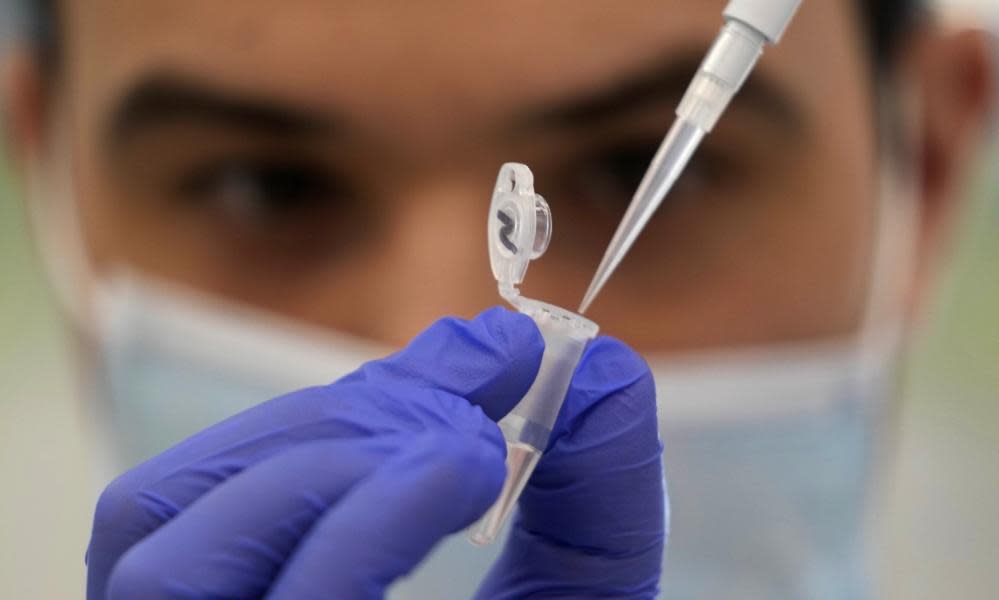UK government advisers call for ‘proactive regulation’ around genomics

Before your child is born, you have their genome tweaked to boost their stature, build and intelligence. When they head to school, the teacher streams them according to their genetic makeup. And when working life begins, an employer checks their DNA to ensure they are healthy, agreeable and sufficiently extrovert for the role.
It may sound like the worst science fiction. But a new government report warns that genomics is advancing so fast that such scenarios are plausibly on the horizon, with often few laws and regulations to prevent them.
To avoid genomic technologies causing harm to the public, pre-emptive action should be taken now, it says.
“We are still in the infancy of understanding the complexity of genomic data but this is changing very rapidly,” said Sir Patrick Vallance, the government’s chief scientific adviser. “Now is the time to consider what might be possible, and what actions government and the public could take.”
The Government Office for Science consulted 30 experts on science, technology and policy before writing the Genomics Beyond Health report, a 198-page digest of where we are with genomic science and where the technology may take us. The report paints a rich picture of a genetics revolution driven by disease-resistant crops, net zero biofuels and hens that don’t peck one other to pieces.
But the authors highlight a raft of ethical and practical issues, including how genomic technologies are already running ahead of scientific evidence and veering into dubious territory. A handful of firms offer genetic tests for IQ, for example, a trait that may be influenced by more than 1,000 genes and their interactions with the environment the person lives in. Other companies offer music playlists that claim to be inspired by customers’ “origins”.
One controversial field of research aims to create “polygenic scores” that draw on multiple genes to predict how well a child will perform in education. If the predictions become reliable enough, they could help schools tailor their teaching for students with learning disabilities, the report states.
But the authors go on to note that, today at least, parental education is a more accurate predictor of how well a child will perform. There are no regulations in the UK around the use of genomics in education and little to stop genomic testing firms from marketing the tests to parents, they add.
A similar lack of legislation means UK employers are not prohibited from using genomic analysis when hiring. The situation leaves the door open for companies to select workers for optimal health, personality traits and even their likelihood of becoming injured in the workplace. “Unlike in the US, there is nothing explicit in UK legislation barring the use of genetic testing in job or candidate selection,” the authors write.
More areas are due to be shaken up by genomics, the report explains. The criminal justice system may have to decide whether jurors should take into account a person’s genetic propensity for violence when deciding their fate. Meanwhile a shift from genetic fingerprinting to whole genome sequencing at crime scenes might allow police to issue a “predictive photofit” of the individual they want to find. Rather than screening sports stars for performance enhancing drugs, they may need to be checked for genetic upgrades.
“There is a risk that future scientific and technological advances could further outpace existing regulation structures, raising the possibility of genomic technologies being misused and causing harm to UK citizens,” the report warns. “Proactive regulation that preempts the potential risks of future technologies would help to minimise risks and ensure that UK citizens are protected by law in terms of their genomic data privacy, anonymity, and data security.”

 Yahoo Movies
Yahoo Movies 
